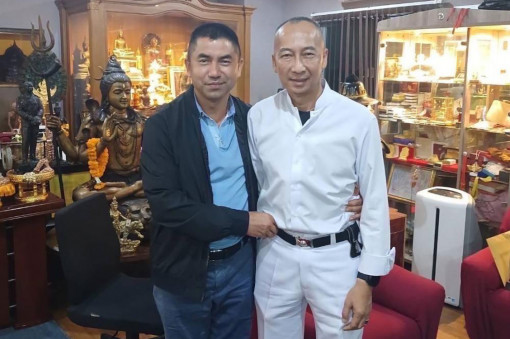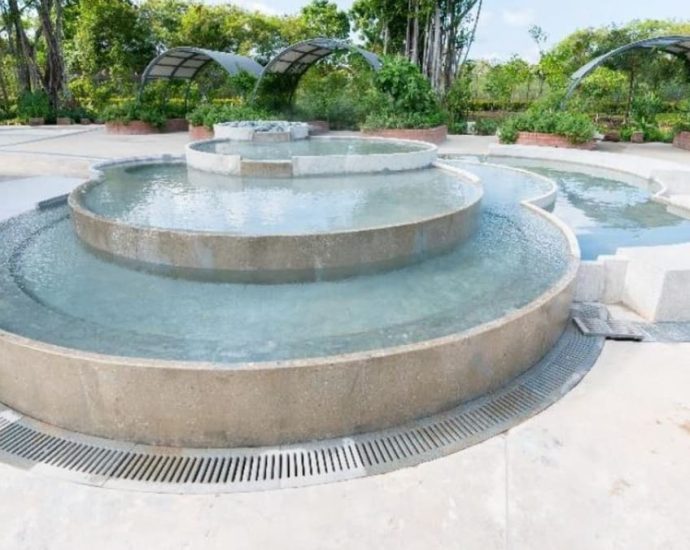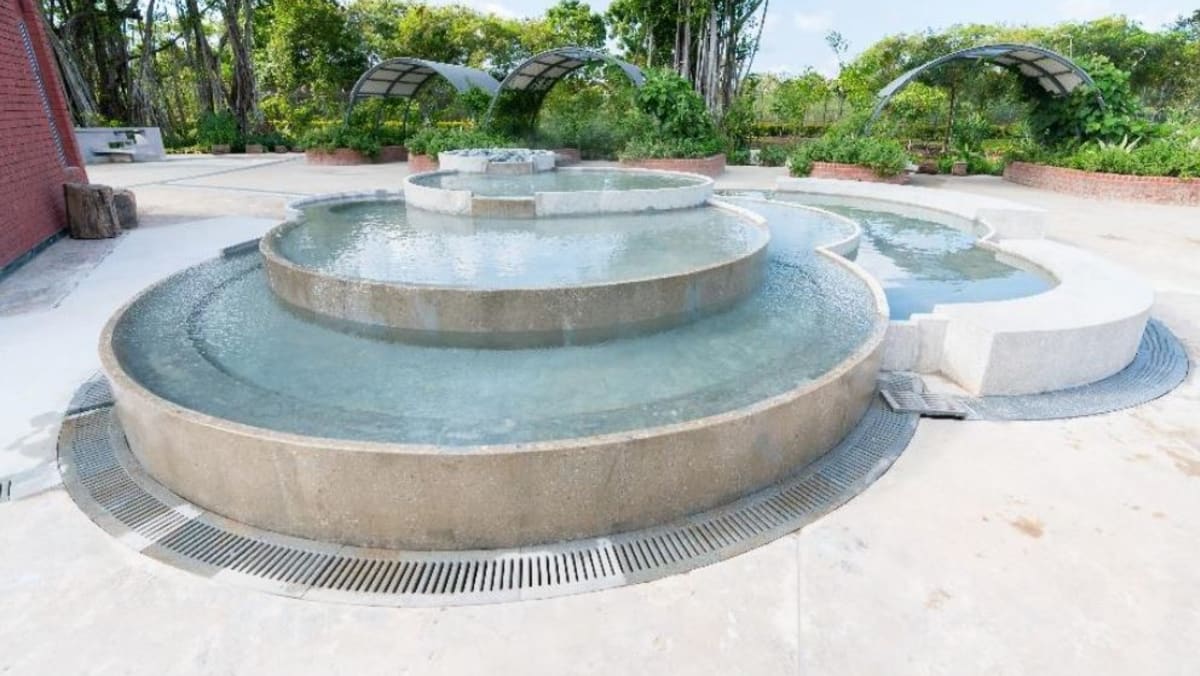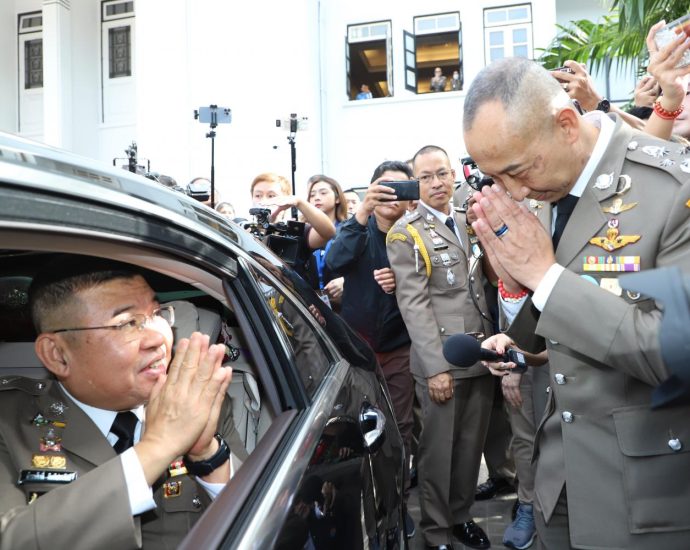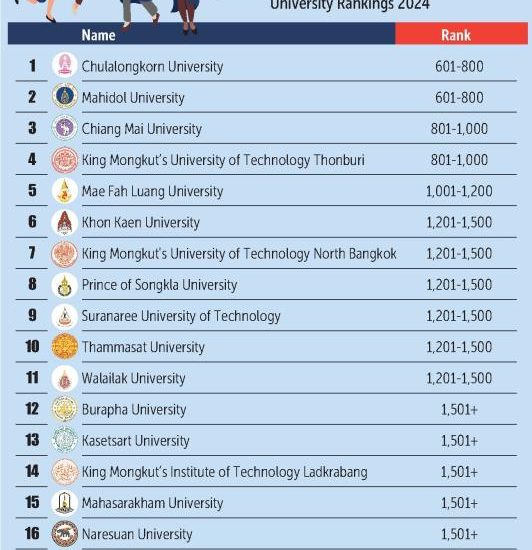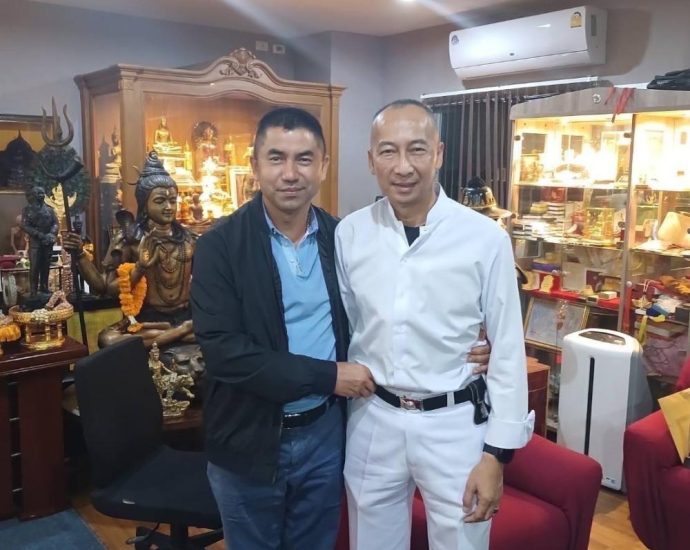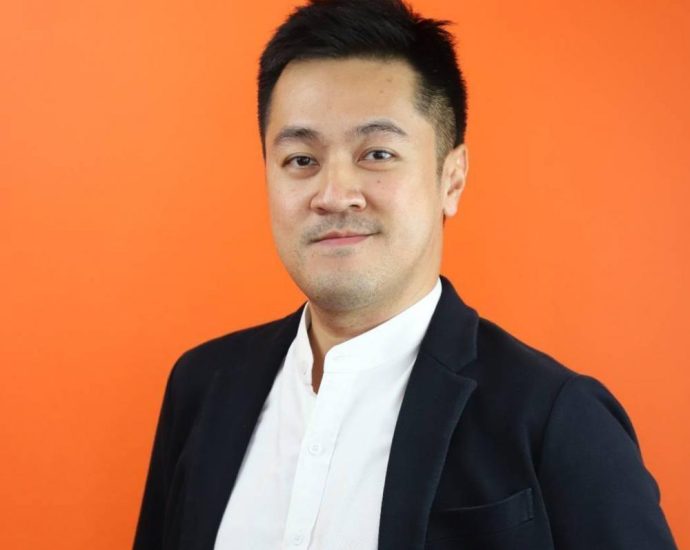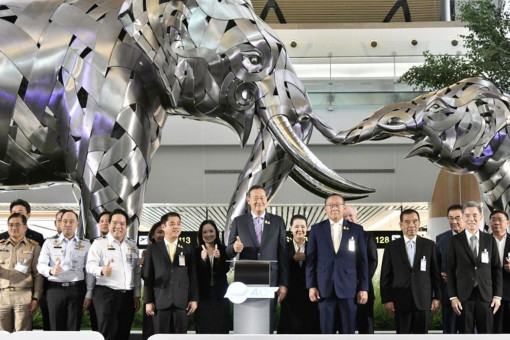New police chief explains photo with ‘Big Joke’
Torsak calls on rival to ‘clear the air’
PUBLISHED : 30 Sep 2023 at 06:48

Pol Gen Torsak Sukvimol, who has been named the new national police chief, said he has asked deputy national police chief Pol Gen Surachate Hakparn to clear the air after the latter’s house was searched by officers early this week.
Pol Gen Torsak was addressing questions after a photo of him shaking hands with Pol Gen Surachate circulated on social media on Friday.
According to media reports, Pol Gen Surachate, aka “Big Joke”, sought to meet Pol Gen Torsak in private to congratulate him on his appointment succeeding Pol Gen Damrongsak Kittiprapas, who is due to retire today.
The incoming police chief said he had reached out to Pol Gen Surachate after Prime Minister Srettha Thavisin expressed concern that this week’s events might not bode well for the image of the Royal Thai Police (RTP).
There was speculation that the police search of Pol Gen Surachate’s house was an attempt to discredit him ahead of the Sept 27 appointment of a new police chief. Both Pol Gen Torsak and Pol Gen Surachate were among the candidates.
Pol Gen Torsak denied having anything to do with Pol Gen Surachate’s house search while insisting the pair had no personal conflict and were in talks about how to move the police force forward.
“I knew nothing about the house search, and that’s why I had to talk to him to explain that there was an attempt to pit us against each other during the nomination,” Pol Gen Torsak said. He said the photo was taken after that meeting.

Outgoing national police chief Pol Gen Damrongsak Kittiprapas, left, accepts a greeting from incoming top cop Pol Gen Torsak Sukvimol. (Photo: Apichart Jinakul)
Meanwhile, political activist and former senator Ruangkrai Leekitwattana said he has asked the Office of the Ombudsman to seek the Administrative Court’s intervention over the appointment of the new police chief.
He cited a claim by Pol Gen Ake Angsananont, a former deputy national police chief who voted against Pol Gen Torsak, as the basis for the petition.
In that meeting, Mr Srettha, who is the ex-officio chairman of the Police Commission under the Royal Thai Police Act, nominated Pol Gen Torsak for the top police job, and the attendees selected Pol Gen Torsak by a vote of 10 to 1.
Pol Gen Ake voted against the nomination, saying the appointment was not in line with the regulations.
Mr Ruangkrai echoed similar sentiments, adding this was why he was seeking the court’s ruling on the appointment.

